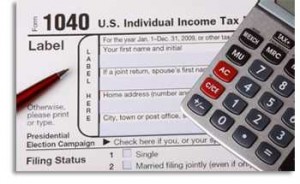 If you are pursuing a degree in accounting or a related business field, the career title of revenue agent is just one of the many professional opportunities available to your qualifications. Similar to tax examiners, revenue agents are specialized accounts who work predominately for the United States Internal Revenue Service (IRS). Revenue agents are given the responsibility of examining and auditing all financial tax records for individuals, corporations, businesses, and other organizations to ensure all proper tax liabilities have been paid for. For those who are interested in ensuring that federal, state, and local governments are receiving the tax money they are due from all U.S. citizens, read on to learn more about revenue agents.
If you are pursuing a degree in accounting or a related business field, the career title of revenue agent is just one of the many professional opportunities available to your qualifications. Similar to tax examiners, revenue agents are specialized accounts who work predominately for the United States Internal Revenue Service (IRS). Revenue agents are given the responsibility of examining and auditing all financial tax records for individuals, corporations, businesses, and other organizations to ensure all proper tax liabilities have been paid for. For those who are interested in ensuring that federal, state, and local governments are receiving the tax money they are due from all U.S. citizens, read on to learn more about revenue agents.
Typical Job Description for Revenue Agents
With their high-level of expertise in tax-related accounting, revenue agents are hired by the Internal Revenue Service and other equivalent government agencies to review complex tax returns for accuracy by individuals and businesses. In a typical 40-hour workweek, revenue agents will be responsible for reviewing filed tax returns to ensure accordance with the law, contacting taxpayers to address problems and conducting audits to verify tax information. They will also be responsible for maintaining records of actions taken in each case, and notifying taxpayers of any under or over payment. Whereas tax examiners often handle tax returns filed by individuals with very few deductions, revenue agents are tasked with reviewing much more complex returns and all of their supplement financial documentations.
Average Annual Salary for Revenue Agents
While a revenue agent's actual salary depends on their pay grade as well as geographic location, the Bureau of Labor Statistics reports that tax examiners and revenue agents bring home a mean yearly wage of $56,120, which is equivalent to $26.98 per hour. New revenue agents with little to no experience often start out with a beginning salary of around $30,700, but those with many years of service can make a sizeable salary of $92,750 or more. The highest salaries for revenue agents are provided through the federal government, with an average annual salary of $65,640. Based on job performance, it is common for revenue agents to qualify for a promotion without any competition at least once per year to increase their pay grade levels.
Requirements for New Revenue Agents
Although the majority of newly hired revenue agents are given on-the-job training throughout their first year, there are some minimum educational requirements needed for the position. For employment by the federal government in the U.S. Internal Revenue Service, individuals must have at least a bachelor's degree in accounting, economics, business administration, or a closely related field. Those aspiring to become revenue agents should also gather specialized work experience in accounting, auditing, taxation, fraud examination, or bookkeeping to increase their credentials. In order to be successful in this role, revenue agents must possess strong analytical, interpersonal, technological, and organizational skills to verify the accuracy of each entry on tax returns with an attention to detail.
Overall, revenue agents are vital members of government agencies who are responsible for ensuring that all individuals and corporations are making the correct tax payments. Regardless of their specialty area, revenue agents must stay updated with the latest changes made in complex regulations made through federal or state tax laws to ensure all returns are accurate. If you make the choice to become a revenue agent, you will likely enjoy flexible work schedules, exceptional opportunities for promotion, job stability, great insurance benefits, and the ability to work in various locations around the United States.